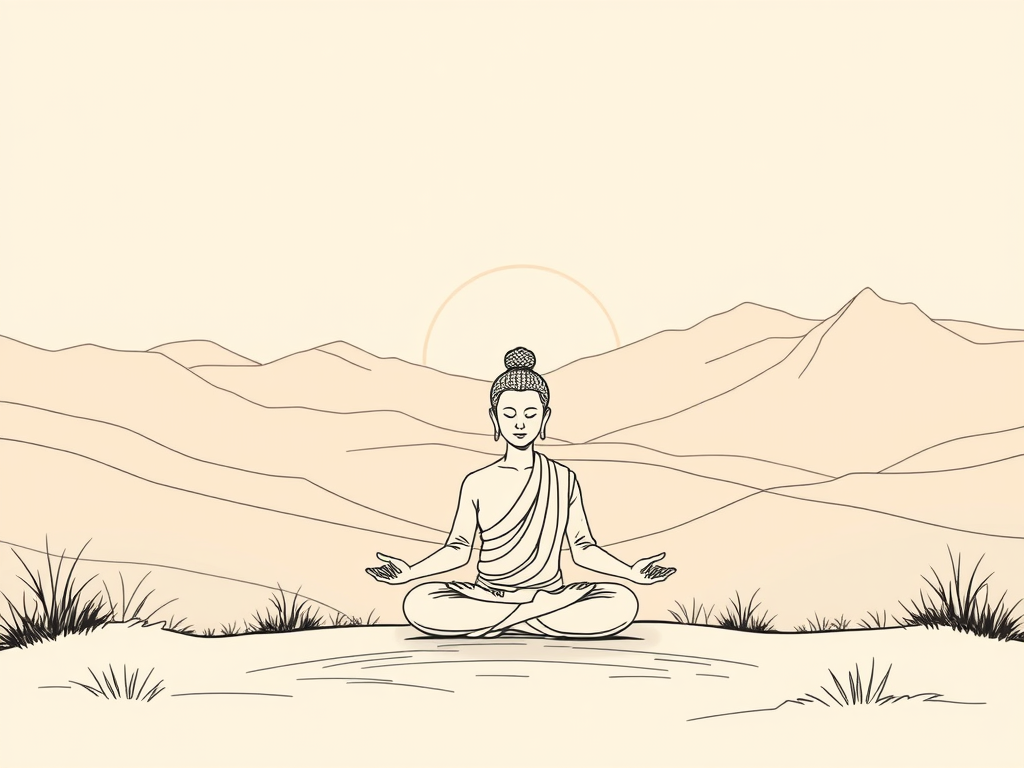
Too often, one can wait for everything to feel “just right” before starting something meaningful.
People tell themselves they’ll begin when the timing, circumstances, or conditions improve. But that kind of waiting can hold one back from growth, discovery, healing, or all of it combined.
I’ve let fear dictate my life at various points.
Not all the time, but enough to reflect back and know that there were many opportunities missed.
Personally, by letting go of the need for perfection, I’ve found greater peace in the process itself. Sustaining that peace is an ongoing practice, but it’s one I’ve learned to welcome.
A part of my healing process has been creating art. However, I’ve only shared it with a handful of close people—those that know what’s up. My art and designs are deeply personal and reflect snapshots of experiences with mental health challenges — a blend of struggle, inspiration, and the raw humanity.
I have begun a Mental Health Awareness Graphic Series starting with six topics: depression, anxiety, ideation, dissociation, anhedonia, and loneliness.
Each poster is designed to be a starting point for meaningful, and often overdue, conversations.
Depression: A reflection of the weight of darkness and the quiet strength it takes to move through each day. This piece was initially inspired by the TED talk of Andrew Solomon, where I first heard the phrase “I felt a funeral, in my Brain,” by Emily Dickinson. It captured exactly how it feels in my head—a funeral, or an Irish Catholic open casket wake.
Anxiety: Capturing the relentless loops of fear and worry, and the courage it takes to find moments of calm. As a sensitive child, fear about a great many things would rip through my mind, leading to persistent, chronic anxiety that developed into generalized anxiety disorder.
Ideation: Shedding light on intrusive thoughts often kept in the dark, with the hope of breaking stigma. Having first-hand experience with ideation since the age of 16, it’s something that ebbs and flows with my depression. Staying grounded in the grief I’d leave behind has helped me resist its pull.
Dissociation: Exploring the surreal detachment from reality or oneself, and the yearning for connection. I didn’t know what this was called until the COVID-19 pandemic, but dissociation became a daily visitor—detaching me from “collective reality.”
Anhedonia: A glimpse into the absence of joy and love, and the small sparks that remind us of its possibility. This is one of the most challenging experiences I’ve faced, where simple joy feels unreachable, no matter how much willpower you summon.
Loneliness: Expressing the aching sense of isolation and the shared humanity that bridges those gaps. Profound in its impact, this type of loneliness shows up even in public spaces. It carries a belief that one may not be worthy of connection.
These six topics are very personal because I’ve lived them all.
I’m hopeful I can share more of my experience in meaningful ways in the hope of helping at least one person who contends with mental illness in its myriad forms. New posters are already in the works, and I’m excited for this evolving series.
Your feedback and suggestions are welcome. If there’s a theme, feeling, or experience you’d like to share, I’d love to hear from you. Your input may help shape future art, resonating with as many people as possible.
My long-term vision for this art goes beyond creating posters. I want this artwork to spark conversations between the people who own them and those who see them. Imagine someone asking about a poster on your wall and the meaningful dialogue that could follow—about mental health, stigma, connection, or shared experience.
Art has a unique power to speak when words are hard to find.
Through this series, I hope to create not just visual representations of mental health struggles but also tools for fostering connection. Together, we can normalize talking about the challenges that shape us and remind each other that no one has to face them alone.
If you’d like to share your thoughts, ideas, or feedback, know that your voice is always welcome.
Be well,
Bert
